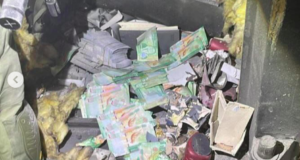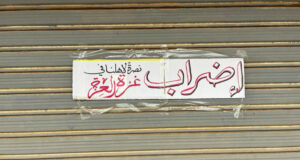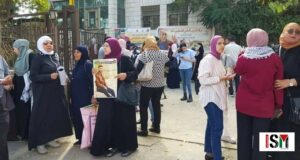from Kim and Anjelka, IWPS, 17 May 2007
Al Nakba, which means “the catastrophe” in Arabic, is the name given by the Palestinians to the 1948 UN partition of British Mandate Palestine, establishment of the state of Israel and the resulting ethnic cleansing of the Palestinian population from major parts of the territory. Between April and May, 1948, as a result of attacks by Zionist militias and the first Arab-Israeli war, more than 750,000 Palestinians were displaced from their ancestral homes and forces to flee to refugee camps in Lebanon, Syria and Jordan. Today, Israel continues to deny the Palestinian Nakba and the right of return of more than 6 million Palestinian refugees worldwide.
More than a thousand people attended the largest commemoration rally, in the West Bank city of Ramallah. Demonstrators marched from the “Camp of the Nakba”, near the Palestinian National Headquarters, to Manara Square in the city’s centre. At Manara Square, members of the Palestinian Legislative Council (PLC) addressed the rally, warning against the renewed factional fighting and saying that Palestinians didn’t need a new Nakba.
A number of Palestinians with Israeli citizenship made the journey to Ramallah to participate in the rally. One young woman, Siwar, who ravelled with her family from Jerusalem, said she was marching “to remind the Israeli people that their ‘independence day’ was our al Nakba and we can never forget that”.
Siwar said that even though she and her family “are forced to have Israeli ID, we are still Palestinian and we will never forget al Nakba”. “We are still all Palestinians”, she said, “whether we are in ‘48’, in the Occupied Territories, Lebanon, Jordan or Syria, and we are united in the memory of al Nakba”.
Dozens of other women joined the Ramallah rally singing traditional Palestinian song remembering the 1948 catastrophe. One participant, Mona said that the reasons she and the other women were marching was because “we want to remember the refugees”.
 International Solidarity Movement Nonviolence. Justice. Freedom.
International Solidarity Movement Nonviolence. Justice. Freedom.




